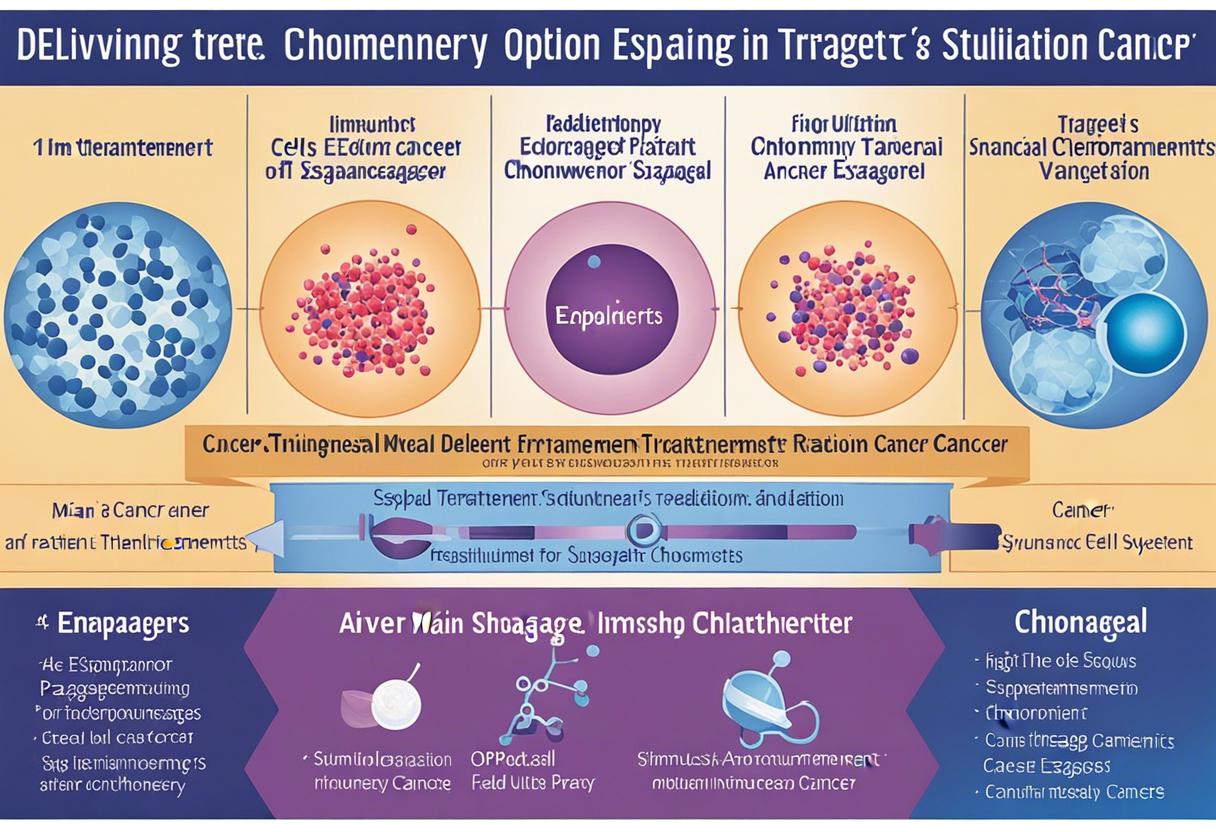Mastering the Mystery: A Comprehensive Guide to the Top 3 Aspects of Esophageal Cancer
Delving into Treatment Options

The stage of esophageal cancer at diagnosis greatly influences the treatment options. The main treatments for esophageal cancer are surgery, radiation, chemotherapy, targeted therapy, and immunotherapy, sometimes used in combination.
Surgery is primarily indicated for localized disease and may vary - from removal of small lesions using endoscopic techniques to esophagectomy that involves removing part or all of the esophagus. For patients with advanced disease and poor overall health, palliative surgeries, or procedures aimed to relieve symptoms rather than cure the disease, might be considered.
Chemotherapy often combines with radiation therapy (chemoradiation) before surgery to shrink tumors and after surgery to kill off any remaining cancer cells. Targeted therapy, as the term implies, targets specific characteristics of cancer cells, thus inhibiting their malignant behaviors. These characteristics are often identified through comprehensive molecular profiling of the tumor.
Immunotherapy, a less conventional method, stimulates the patient's immune system to fight cancer cells more effectively. It often holds promise for those for whom other treatments have failed.
With each passing day, the war on esophageal cancer intensifies, and valuable lessons are gathered, which we'll look into next.
